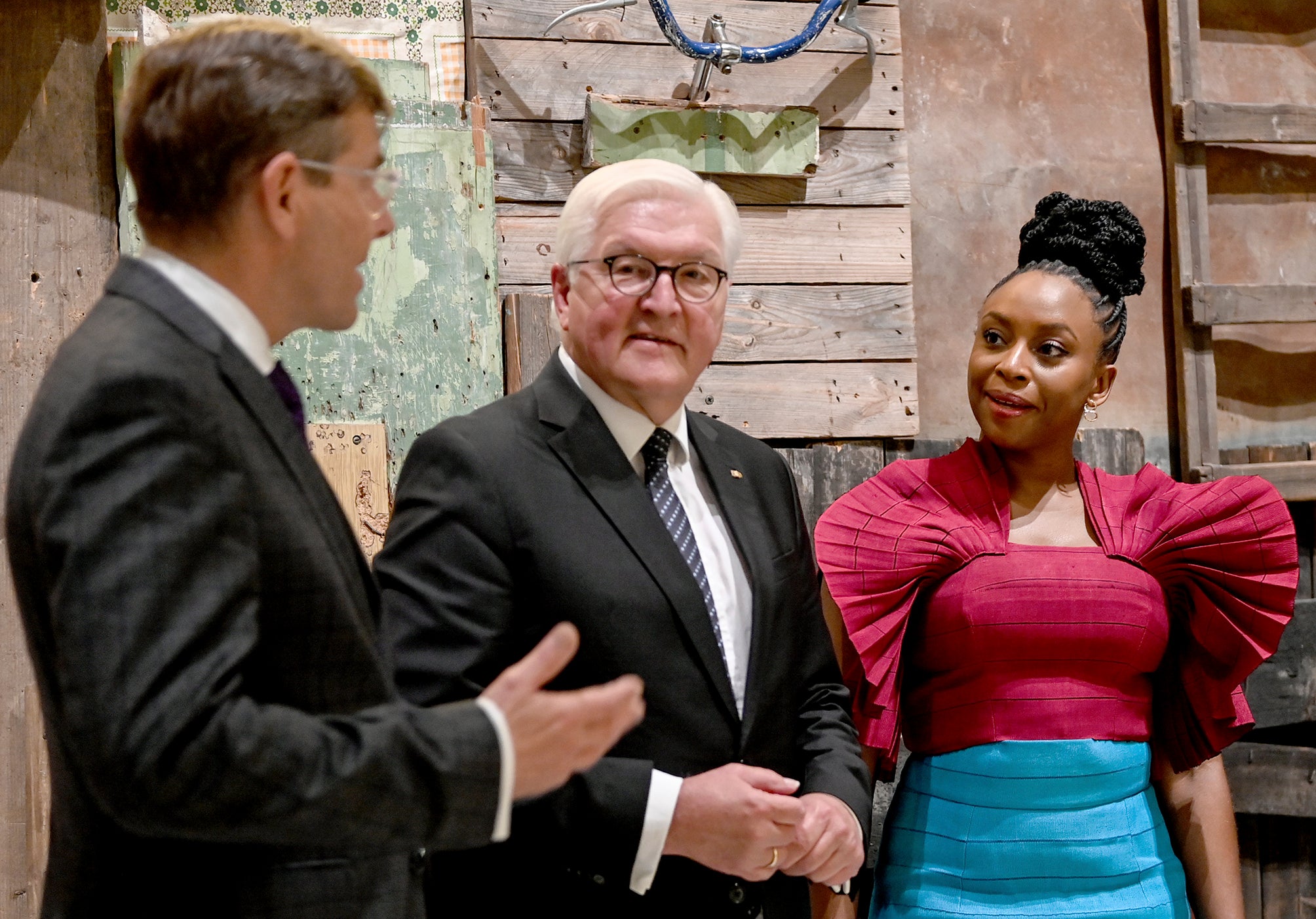German president asks country to confront its colonial past
Germany’s president has called on the country to face its cruel colonial past as he opened a new museum in the capital’s center that will be home to two of Berlin’s state museums which include looted artifacts from countries in Africa and elsewhere

Germany's president called on Germans to face the country's cruel colonial past as he opened a new museum in the capital's center that will be home to two of Berlin’s state museums.
The Ethnological Museum and the Museum for Asian Art both contain artifacts that were looted from countries in Africa and elsewhere.
“Especially the countries in Africa have lost an immense part of their art through the raids of the Europeans,” President Frank-Walter Steinmeier said at the official opening ceremony of the Humboldt Forum.
“The injustice committed by Germany during colonial times must concern all of us, the entire society,” he added.
The Humboldt Forum — located in the heart of Berlin next to the neoclassical Museum Island complex — features collections of African, Asian and other non-European art in a partial replica of a Prussian palace that was demolished by East Germany’s communist government after World War II.
Among the artifacts are the famous Benin Bronzes which were looted from the royal palace of the Kingdom of Benin, in what is now southern Nigeria, by a British colonial expedition in 1897.
The Ethnological Museum has one of the world’s largest collections of historical objects from the kingdom, The decision was taken earlier this year that German museums should work on a restitution plan with museums and authorities in Nigeria, and the Berlin museums authority said in July that it was moving forward with plans to return the Benin Bronzes next year.
The British Museum, which also owns hundreds of artifacts from the former Kingdom of Benin, has said it doesn’t currently have plans to return parts of its collection.
Addressing Germany's colonial history more generally, Steinmeier raised the killing of tens of thousands of people in German-ruled Namibia over a century ago.
Germany has been negotiating compensation payments with Namibia in talks that opened in 2015, and are likely to come to an agreement in the near future.
Steinmeier said that current racism, discrimination and violence against those who are perceived as different and foreign in Germany are in some ways also related to Germany’s colonial past.
“We will only be able to understand and overcome the deeper roots of everyday racism if we shine a light on the blind spots of our memory and if we face our colonial history much more than we have done so far,” he said.
The collections of the Ethnological Museum and the Museum for Asian Art include about 500,000 objects, which were previously housed in museums in the city's Dahlem district. Around 20,000 of those will be shown in the Humboldt Forum, German news agency dpa reported.
Bookmark popover
Removed from bookmarks